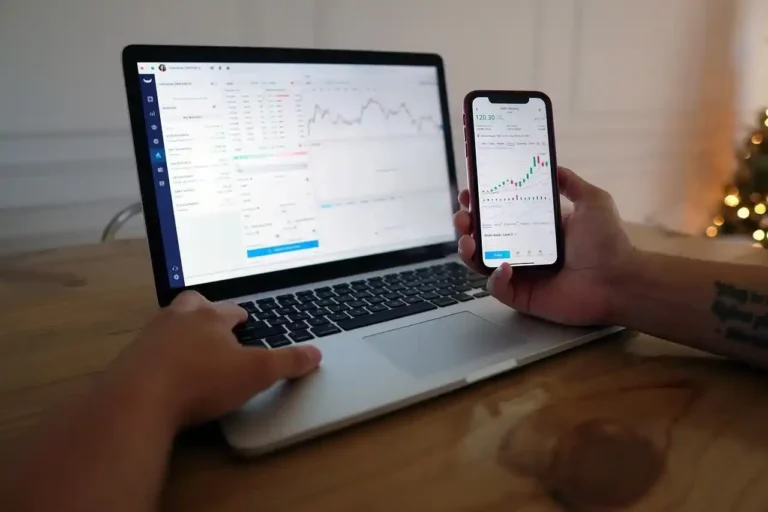In today’s fast-paced digital world, currency trading has become more accessible than ever before, thanks to the availability of trading apps.
A forex trading app offers convenience, flexibility, and real-time access to global financial markets, empowering traders to stay connected and execute trades on the go.
However, with the abundance of trading apps available, it can be challenging to determine which one is best suited for your specific trading needs.
This guide aims to help you navigate the world of forex trading apps by providing essential insights and considerations for choosing the right app to support your trading journey.
Understanding Forex Trading Apps
Forex trading apps are mobile applications designed to provide traders with access to the forex market and facilitate the execution of trades on their smartphones or tablets.
These apps offer numerous benefits, including the ability to trade on the go, stay connected to the markets 24/7, and take advantage of real-time price updates.
Different types of forex trading apps are available, including those provided by brokers, independent trading platforms, and third-party developers.
Mobile trading has gained popularity due to its convenience, allowing traders to react quickly to market movements and capitalize on trading opportunities from anywhere with an internet connection.
Assessing App Security and Reliability
Security is paramount regarding forex trading apps, as they handle sensitive financial and personal information.
Choosing an app from a reputable and regulated provider is essential to ensure the safety of your funds and data. Research the app provider’s background, reputation, and regulatory status to gauge their reliability.
Additionally, read user reviews and ratings to gain insights into the app’s performance and security measures. Check if the app is regularly updated and compatible with the operating system of your device to ensure optimal performance and security patches.
Examining Trading Features and Tools
Real-time price quotes and charting capabilities are fundamental, as they allow you to monitor market movements and analyze price patterns on the go.
Look for apps that provide a wide range of technical indicators and drawing tools to support your trading strategies.
The app should also offer order placement and trade management functionalities, such as stop-loss and take-profit orders, as well as the ability to modify or close trades easily.
Analyzing User-Friendliness and Customization Options
User-friendliness and customization options greatly impact your trading experience. The app should have an intuitive user interface and navigation, allowing you to access key features and information effortlessly.
Look for apps that allow customization, such as personalized chart settings, colour schemes, and layout preferences, to tailor the app to your specific trading style.
Consider whether the app supports synchronization of settings across multiple devices, which can be advantageous if you switch between different devices frequently.
Assessing Account Management and Integration
The app should seamlessly integrate with your brokerage account, providing easy access to account management features. This includes depositing and withdrawing funds conveniently and viewing account balances, equity, and trade history.
Watch for apps that offer access to account statements and trade reports for transparent record-keeping.
Smooth integration between the app and your brokerage account ensures a seamless trading experience and efficient management of your trading activities.
Evaluating Customer Support and Educational Resources
Reliable customer support is crucial in case you encounter any issues or have questions regarding the app’s features or functionality.
Check the available customer support channels, such as live chat, email, or phone support, and assess the responsiveness and helpfulness of the customer support team.
Additionally, consider the availability of educational resources, such as tutorials, videos, or webinars, which can help you enhance your trading knowledge and skills. Some apps may also offer demo accounts for practice and testing purposes.
Considering Additional Features and Integrations
Explore any additional features or integrations that the app may offer. Social trading and copy trading functionalities allow you to follow and replicate the trades of successful traders.
Integration with third-party analysis tools or trading systems can provide advanced charting and analytical capabilities.
Push notifications and alerts for important market events ensure you stay informed even when you’re not actively using the app. Integration with trading communities and forums allows you to engage with fellow traders and share insights.
Testing and Comparing Demo Accounts
Before committing to a specific trading app, take advantage of demo accounts offered by various app providers. Opening demo accounts allow you to test the trading app’s features, user interface, and overall performance without risking real money.
By comparing demo accounts from different app providers, you can assess the user experience, evaluate the app’s strengths and weaknesses, and determine which app aligns best with your trading style and preferences.
Pay attention to factors such as trade execution speed, charting capabilities, order placement, and overall stability of the app. It’s important to thoroughly test and compare multiple apps before making a final decision.
Final Thoughts
By carefully considering the aspects mentioned above and conducting thorough research, you can choose the right forex trading app that caters to your specific trading needs.
Remember that the app’s security, reliability, features, user-friendliness, and integration with your brokerage account are crucial factors to prioritize.
A well-selected trading app will provide a seamless and efficient trading experience, empowering you to stay connected to the markets and execute trades confidently anytime, anywhere.




